PE
At Hillcroft, our vision is to deliver an exceptional and aspirational curriculum; one that strives to develop highly effective teaching and provide children with a memorable learning experience. Through this vision and intent, we aim to ensure that the PE provision is challenging and appropriate, and the mechanisms are in place to allow all pupils the opportunity to reach their full potential. The provision is inclusive, engaging, innovative, inspiring and it raises aspirations - something that Hillcroft promises to deliver in the nurturing of our pupils to achieve their personal best. In line with our pedagogical principles, it will provide high quality sustainable Physical Education and sport within the curriculum and extra-curricular.
We follow the Get Set 4 PE scheme which provides children with the skills and game experience to allow them to develop into lifelong participation in sport.
EYFS
Physical development involves providing opportunities for young children to be active and interactive; and to develop their coordination, control, and movement. Pupils must also be helped to understand the importance of physical activity and to make healthy choices in relation to food.
This curriculum will offer these children a solid base from which their physical activity journey can continue to grow and flourish as they move through the school.
Key Stage 1
Pupils develop fundamental movement skills, become increasingly competent and confident and access a broad range of opportunities to extend their agility, balance and coordination, individually and with others. They are able to engage in competitive (both against self and against others) and co-operative physical activities, in a range of increasingly challenging situations and game scenarios.
Learning these basic fundamental skills of physical activity across two years ensures that they can more confidently apply the set of skills to a range of sports such as rugby, football, netball, hockey and more.
Key Stage 2
Pupils continue to apply and develop a broader range of skills, learning how to use them in different ways and to link them to make actions and sequences of movement. They enjoy communicating, collaborating and competing with each other. They develop an understanding of how to improve in different physical activities and sports and learn how to evaluate and recognise their own success.
Pupil Voice:
What do you like about PE or being active outside?
I like running and playing the warm-up games.
Agatha, Reception
I like learning and practicing different skills which I can also use at home.
Leo, Year 5
I like being able to compete in competitions, both in my PE lessons and in competitions with other schools.
Max, Year 6
Which skills have you been learning in PE?
We have been learning about how to balance on our feet.
Louisa, Reception
We have been learning about how to throw and catch a small ball across the body with both our hands.
Shanay, Year 6
We have been learning how to sit and roll a ball up and down our legs. Henry, Year 2
Progression of Skills and Knowledge:
At Hillcroft Primary School, we follow the National Curriculum. From this, we ensure that skills and knowledge are taught in the appropriate year groups to ensure progression and sequencing. This is supported - in Real PE - by their progression of skills and knowledge documents for COGs and FUNs.
Across Early Years, to ensure progression from the newly published Early Years Framework into KS1, we follow the revised and updated July 2021 version of Development Matters. In our Nursery, children are aged three and four, and so the progression maps show the objectives related to Three and Four year-old objectives. However, some children join after just turning three, therefore, with these children and following rigorous assessment of starting points, it may be deemed necessary to look at the Birth to Three objectives too. For more information on this, please see the Nursery and Reception year group pages.
Below are links to our Progression of Skills and Knowledge documents.

